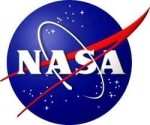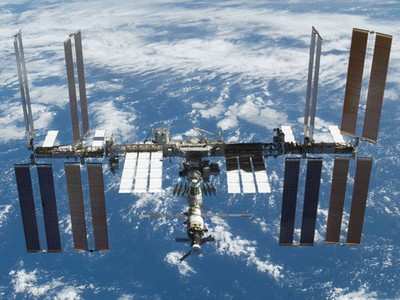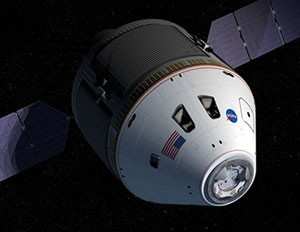Program Offices, New Technology Solicitations Announced
NASA has announced program office assignments at three NASA
field centers to align the president's fiscal year 2012 budget
request and the NASA Authorization Act of 2010. The agency also has
released three Space Technology Program solicitations.

NASA will create new program offices to manage human spaceflight
activities associated with the development of the Space Launch
System, the heavy-lift rocket that will carry humans beyond low
Earth orbit; the Multi-Purpose Crew Vehicle, the next human
exploration spacecraft; and commercial spaceflight vehicles. "NASA
is moving forward to aggressively implement the bi-partisan
direction the President and Congress have given us, and these
program offices will help us carry out this important mission,"
NASA Administrator Charles Bolden said. "The United States
continues its leadership role in human spaceflight and these moves
will ensure this continues for many years to come."
NASA's Johnson Space Center in Houston will host a program
office responsible for developing the Multi-Purpose Crew Vehicle.
Johnson also will continue to lead the way in human research to
enable exploration beyond low Earth orbit. This research heavily
leverages the International Space Station. In addition, the center
will be critical to efforts to facilitate commercial access to low
Earth orbit.
NASA's Kennedy Space Center in Florida will lead the way in
enabling commercial human spaceflight capabilities and host a
program office dedicated to that work. Kennedy will continue
to provide launch services to both science missions and commercial
crew providers.
The Marshall Space Flight Center in Huntsville, Ala., will lead
NASA's efforts on a heavy-lift rocket that will carry humans beyond
low Earth orbit. The center will house the program office for the
Space Launch System and continue to support station operations.

NASA also released three Space Technology Program solicitations
Tuesday as part of the agency's efforts to develop innovative
solutions to enable future exploration and science missions and
lower the cost of other government and commercial space activities.
"These solicitations for innovative research and technology
development, from their earliest stages through maturation and
testing in flight, will provide new knowledge and capabilities for
our future missions," NASA Deputy Administrator Lori Garver said.
"Technological leadership is how the United States is going to
out-innovate, out-educate and out-build the rest of the world."
The NASA Innovative Advanced Concepts program seeks
transformative ideas to enable new aeronautics and space systems
capabilities. NASA's Game Changing Development Program is
soliciting proposals for research and technology development for
revolutionary improvements in America's space capabilities. NASA
also is seeking Technology Demonstration Mission proposals in four
areas: high-bandwidth deep space communication, navigation and
timing; orbital debris mitigation or removal systems; advanced
in-space propulsion systems; and autonomous rendezvous, docking,
close proximity operations and formation flying.

The programs are managed by NASA's Office of the Chief
Technologist consistent with provisions of the Authorization Act of
2010. NASA seeks proposals for all three solicitations that align
with the agency's Space Technology Roadmaps and NASA's Grand
Challenges. Awards are contingent on availability of fiscal year
2011 appropriations.
 Classic Aero-TV: In Praise of Alabamas Patriot Aircraft USA
Classic Aero-TV: In Praise of Alabamas Patriot Aircraft USA NTSB Final Report: Cirrus Design Corp SR22
NTSB Final Report: Cirrus Design Corp SR22 ANN's Daily Aero-Term (12.21.25): Dead Reckoning
ANN's Daily Aero-Term (12.21.25): Dead Reckoning ANN's Daily Aero-Linx (12.21.25)
ANN's Daily Aero-Linx (12.21.25) Aero-News: Quote of the Day (12.21.25)
Aero-News: Quote of the Day (12.21.25)





